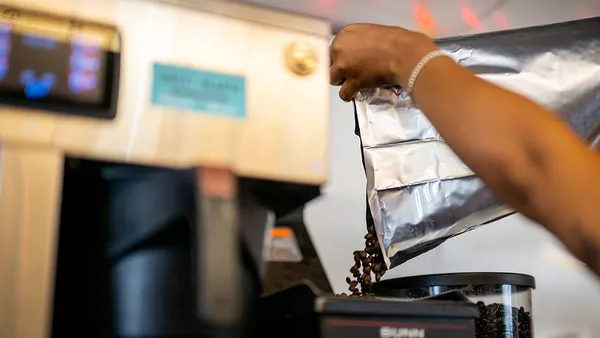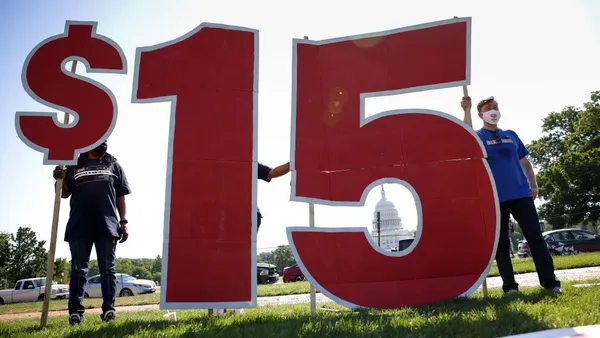Dive Brief:
- The U.S. Equal Employment Opportunity Commission (EEOC) has sued Safeway, alleging that it refused to provide an interpreter for a deaf job applicant, in violation of the Americans with Disabilities (ADA).
- According to the EEOC, Joel Sibert applied online for jobs in produce, food, courtesy and as a Starbucks clerk at a Safeway store in Seattle. A recruiter called him in for an interview, but when he asked for an interpreter, the recruiter said she knew nothing about providing interpreters, rejected his recommendations for interpreters and said she would get back to him. When Sibert didn't hear back, he made several calls to the store, but was either placed on hold or told no one was available.
- EEOC sued on his behalf, seeking monetary damages and injunctive relief, which, according to the commission, typically includes training on anti-discrimination laws, posting notices in the worksite and compliance reporting.
Dive Insight:
EEOC's suit alleges an all-too-familiar example of an employee, especially one assigned to a leadership role, lacking ADA training. Training — and refresher training — is critical in avoiding violations of various employment laws.
The ADA requires employers to provide individuals with disabilities reasonable accommodation to allow them perform the essential duties of a job, if the accommodation doesn't create an undue burden for the employer. This mandate applies to job applicants, too. Employers have a responsibility to ensure that application and interview processes are accessible. This can include making an exception to a requirement, such as video interviews, EEOC noted in an informal discussion letter last week.
Despite the change in administrations, EEOC has held to its current strategic enforcement plan and continues to enforce the law as promised. For employers needing assistance, the agency offers insight on what it considers best practices.









